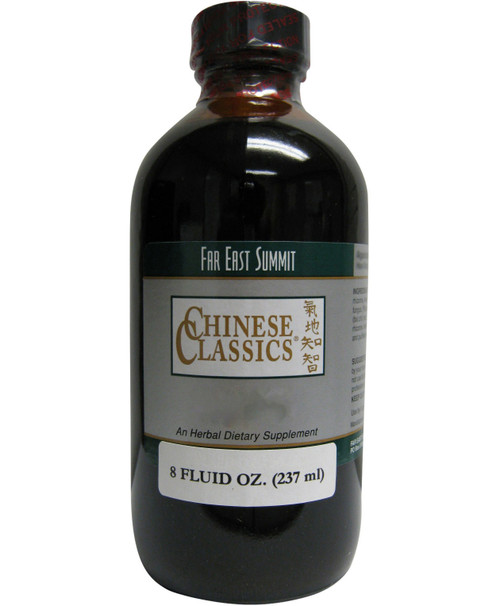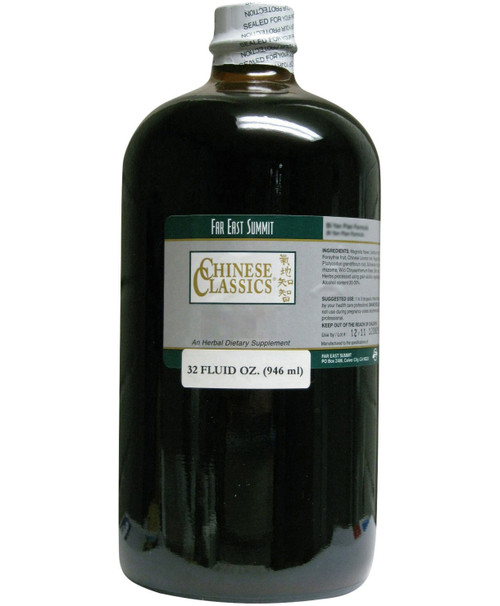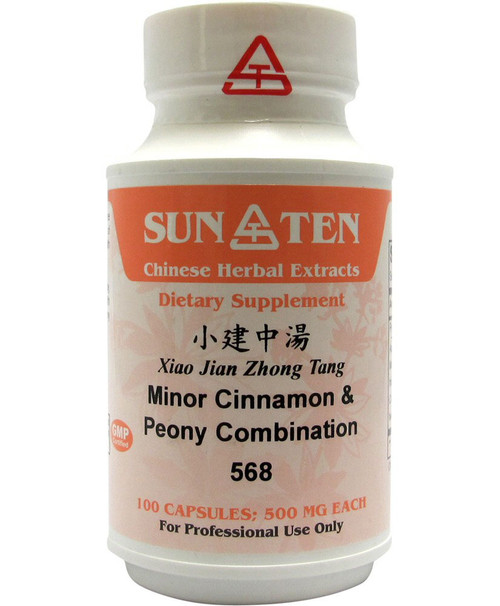
Brand: Far East Summit Chinese Classics
Xiao Jian Zhong Tang 8 ounce
Product Description
Far East Summit Chinese Classics Xiao Jian Zhong Tang 8 oz
Xiao Jian Zhong Tang, also known as Minor Center-Constructing Combination warms and tonifies the middle burner and moderates spasmodic abdominal pain.
Unit Size: 8 fl oz. dropper bottle
Potency: 5:1
Properties: Source Text: Discussion of Cold-induced Disorders (Shang han lun)
Contraindications: Contraindicated for heat from yin deficiency.
Chinese Symptomology: Intermittent, spasmodic abdominal pain that responds favorably to local application of warmth and pressure; Lusterless complexion; Reduced appetite; Low-grade fever; Irritability; Cold and sore extremities with nonspecific discomfort; Dry mouth and throat
Western Symptomology: Gastritis; Gastric ulcer; Duodenal ulcer; Inflammatory bowel disease; Neurastenia; Chronic hepatitis; Chronic nephritis; Pernicious anemia; Hypoglycemia; Fever of unknown origin; Leukemia
Actions: Warms and tonifies the middle burner and moderates spasmodic abdominal pain.
Pattern: Spasmodic abdominal pain due to comsumptive deficiency.
Tongue: Pale with a white coating
Pulse: Thin, wiry, and moderate pulse
Chinese name: Xiao Jian Zhong Tang
English name: Minor Center-Constructing Combination
Description
Warms the center and supplements the qi, treats abdominal pain due to vacuity cold.
Complete extraction 5:1 liquid concentrate from Far East Summit processed using purified water and whole grain alcohol only. Alcohol content 16-25%.
This formula was designed to treat spasmodic abdominal pain due to consumptive deficiency (xu lao). Internal injury due to consumption (brought on by overwork, improper eating habits, poor diet, etc.) leads to cold from deficiency of the middle qi. When the abdomen loses the warmth of the yang qi, the result is intermittent spasmodic abdominal pain that responds favorably to local application of warmth and pressure. A lusterless complexion, reduced appetite, and a pale tongue with a white coating indicate cold from deficiency of the middle burner. The pulse is of particular interest. The combination of cold from deficiency and the body's reaction to the pain caused by it results in a thin, wiry, and moderate pulse. The Spleen is the source of the transformation and transportation of nutrients in the body, and governs flesh and the limbs. When the Spleen qi is cold and deficient, the source of transformation is weakened. This can lead to dissipation of both qi and blood and give rise to problems at the level between the protective and nutritive qi. The disharmony between these two levels and the resulting lack of proper regulation between the yin and yang can lead to a low-grade fever. The same process can manifest as cold, soreness, and general discomfort in the extremities. The lack of proper transportation combined with cold from deficiency lead to the seemingly paradoxical signs of a pale tongue with a dry throat. Note that if the patient is thirsty there will be a desire for hot beverages. When the Spleen Qi is deficient it drains an inordinate amount from its mother organ, the Heart, which not only causes palpitations and irritability, but also contributes to the lusterless complexion. This is a popular formula which can be used for a variety of consumptive disorders with yang deficiency. It is the primary formula for treating abdominal pain due to cold from deficiency characterized by abdominal pain that responds favorably to warmth, and accompanied by cold, sore extremities. There should be no signs of heat, such as constipation or yellow urine. This formula can be used in treating conditions with heat due to a lack of regulation between the yin and yang. This usage illustrates the method of expelling heat with sweet, warm substances. The characteristic low-grade fever (precipitated and aggravated by overexertion) is often accompanied by cool extremities and a desire to drink hot beverages. This distinguishes it form heat due to yin deficiency in which the palms are always warm and there is a desire to drink cool beverages. This formula may also be used in treating jaundice and dysenteric disorders due to cold from deficiency. - Bensky: Chinese Herbal Medicine Formulas and Strategies.
Ingredients
Oryza sativa, White Peony root, Cinnamon twig, Fresh Ginger rhizome, Honey-Baked Licorice root, Red Dates (hong zao).












